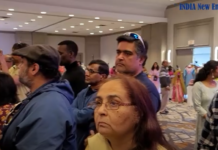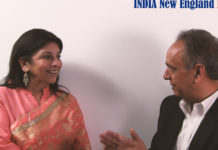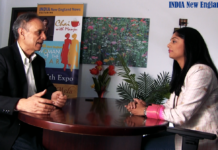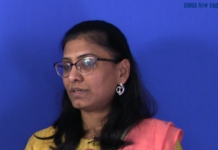By Upendra Mishra
BOSTON—The beauty of arranged marriage is that you commit everything you have to your partner—or at least commit to share everything with him or her without knowing anything about your partner. You probably have never met her—or may be just a few times. You start your married life after all commitments have been already made—family, social, cultural, legal and religious. A very solid foundation, indeed.
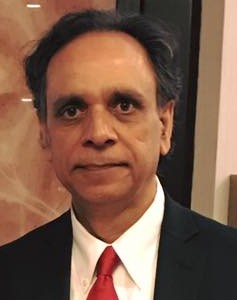
If the commitment is true, you also get an honest analysis of who you truly are from your spouse. This was true—at least in my case. We had just gotten married and my wife moved to Mexico City, Mexico, where I was working. A couple of weeks later, we had our first fight. My wife said I was full of ego. I flipped out. Really flipped out. I had never thought that anyone would characterize me as full of ego. I was a good kid, respected elders and teachers, got along well with my friends and had started a great career. I also helped my family and friends if I could in any way. Where was my ego then?
That label of ego, however, stayed with me. About 20 years later, I started to ponder about life, about the things I had done and the things I wanted to do. Unconsciously, I kept bumping into my own ego. It took few years to realize that my wife was so right the first time when she diagnosed me my ego. As my interest in scriptures, mythologies, psychology and historical figures got deeper, my understanding of the true nature of ego also grew.
Earlier this week, I was going to my office and had just turned on the National Public Radio. There was an interesting conversation going on between host Terry Gross and Michael Pollan, author of the “How To Change Your Mind: What The New Science Of Psychedelics Teaches Us About Consciousness, Dying, Addiction, Depression, And Transcendence.”
“You know, one of the things our mind does is tell stories about ourselves. And if you’re depressed, you’re being told a story, perhaps, that you’re worthless, that no one, you know, could possibly love you, you’re not worthy of love, that life will not get better,” Pollan was telling Gross. “And these stories, which are enforced by our egos, really, trap us in these ruminative loops that are very hard to get out of. They’re very destructive patterns of thought.”
The word “egos” really got stuck in my head. I remembered I had written about ego in one of my columns in February this year: “Pearls of Wisdom: The Ego, Death and a Conversation With the God of Death.” When I reached my office, I re-read the column, revisiting my trysts with my own “egos”.
Ego is so subtle, so smart, so overwhelming, and so powerful that you cannot even imagine its destructive potency. When you give something to someone, it tells you I gave; when you love someone, it tells you I loved; when you renounce your possessions, even then it tells you “look I renounced everything I had.” I am better, I am good, I have this and that, and it goes on attaching itself to everything and weaving its own tapestry of delusional reality and falsehood in your mind.
We may call this our ego trip, and we all have this—some less, some more. The unfortunate thing is that ego completely clouds our innocence, purity, our true self and who we really are at the core. We get into a vicious cycle and never get out of it unless we recognize it and root it out completely. Only after removing ego, we come to know our true self.
In the ancient Indian scripture of Katha Upanishad (also known as Kathopanishad), a young teenager Nichiketa meets Yama, the God of Death, and asks: “How can I know that blissful Self?”
Answers Yama: “There are two selves: the separate ego and the indivisible Atman. When once rises above I and me and mine, the Atman is revealed as one’s real Self.”
The ego, however, is a bigger hurdle in realizing the Self. Yama explains this through a hierarchy of things with the Brahman or the Self sitting on the top, and puts ego above the mind and intellect:
- Brahman/Self
2. Un-manifested cause
3. Ego
4. Intellect
5. Mind
6. Senses
7. Desires.
Even if someone is able to control one’s senses, regulate one’s mind, and use intellect wisely, one may still not realize the Self without the understanding or getting rid of ego.
In Yoga Vashishtha, after 16-year-old Rama returns home from travelling around the kingdom and goes into depression after seeing the miseries around, he tells sage Vashishtha: “I am much afraid of this ego” which is the source of all evil.
“Ego is illusory and deludes people. Ego is nothing, but it is everything for the worldly people. Ego is born of ignorance. Pride nurtures it. There is no enemy greater than ego. Ego has its seat in the mind. Ego makes man commit evil and wrong actions. Ego is a disease. Pride, lust, anger, delusion, greed, jealousy, love and hate are the servants of this ego. Therefore, the real secret lies only in the renunciation of this ego. Teacher of Great wisdom – Please bless me so that I may free myself from this ego.” (This is a rough, summarized translation form a Yoga Vashistha website. The actual text describes this in more detail.)
Personally, I think that if anything goes wrong in your life or you are unable to find what you have looking for all your life, it would wise to look for the ego within. Most people start blaming circumstances, luck or God, and go off the track because ego clouds our thinking and creates doubt, fear, distrust, jealousy, and the mother of all other evils: anger.
Unless, you root out the ego completely, it will always destroy everything. That is the DNA or sole nature of ego. The ego also wears many subtle colors (to confuse us): I am the best, my work is the best, my honor and self-respect is most important, I will not compromise on this and that, I can do anything I want because I am the best at everything I do, I am the best friend, I am the most loyal person, and never hurt anyone, I always help people and people love me and listen to me.
After this type of thinking, our ego helps us create our own false persona, our own delusional and autobiographical story and we start believing in this as the reality and for us it becomes reality. As a result, the ego becomes very happy now because it is controlling everything and is in-charge. Lately, social media has further intensified self-indulgent. A few likes or comments on your post may boost your ego further and can create a delusional reality for you.
Your true Self tries to argue with your ego and says this is not the right thing, but ego shuts you down because it has all the so-called self-evidence that it is the best. And then this falsehood becomes one’s reality and you are start living that. At this stage, true friends or loved ones get confused, perplexed and try to help and tell the truth but they are screamed at by the ego. Ego again creates doubt and fear in friendship and relationship, and eventually friends and loved ones slowly distance themselves away.
How do you know your ego has gone out of control? When everything falls apart and nothing is working the way you want—no matter how hard you try. The ego still tries to convince you that your friends are wrong, screw them. You are the best and screw everyone. Once that realization comes, some people wake up and empower themselves to eliminate the ego completely. Most, however, remain the salve of their ego.
How to eliminate the ego? Remove all the perceptions about yourself from all equations, and especially that you are the best and you can do anything (the truth is temporarily you get some success because of ego), but in the end you emerge as a complete looser and then it is too late. But once you realize you have the ego problem, then you work on and awaken your true self, your inner power, your inner love and peace, and then you can do anything effortlessly.
Robin S. Sharma, author of The Monk Who Sold His Ferrari, has rightly advised about the ego: “Leave your ego at the door every morning, and just do some truly great work. Few things will make you feel better than a job brilliantly done.”
(Mr. Mishra is managing partner of the Waltham, MA-based integrated inbound marketing and PR firm The Mishra Group. He writes about his three passions: marketing, scriptures and gardening.)






